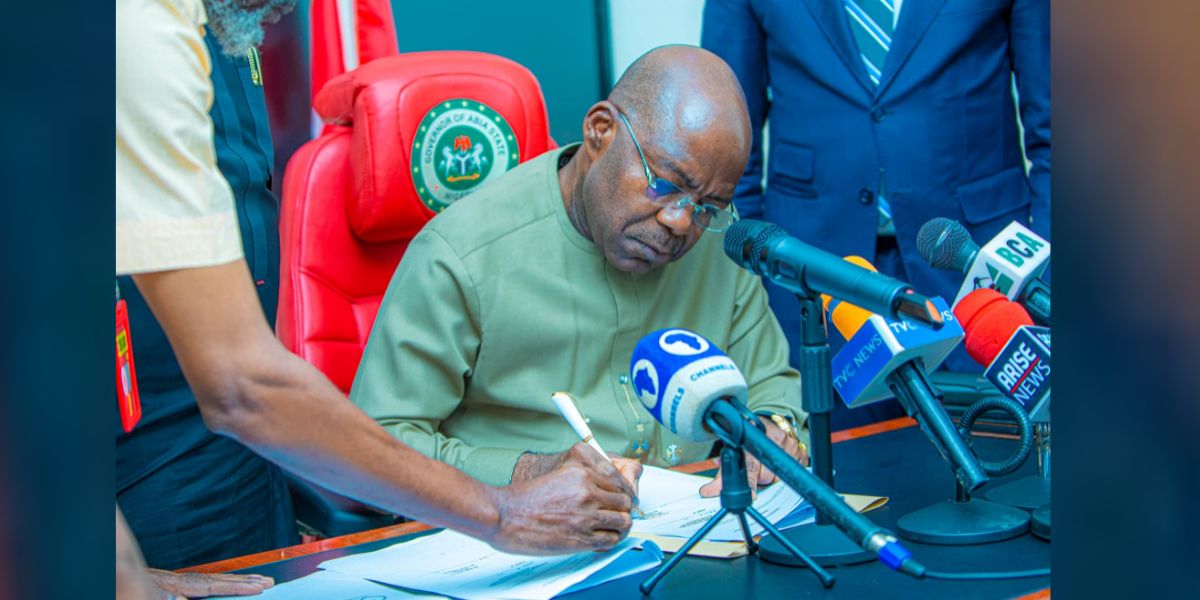STATE NEWS
Abia Leads National Debt Cure: How Otti Slashed Domestic Debt by 57% in Just 12 Months

Abia Leads National Debt Cure: How Otti Slashed Domestic Debt by 57% in Just 12 Months
Abia State has slashed its domestic debt by a record 57% in just one year under Governor Otti’s reforms, becoming Nigeria’s top fiscal outperformer. Read more.
… Governor Alex Otti’s fiscal reforms position Abia as the nation’s top domestic debt reducer, reshaping sub-national finance
Abia State has emerged as Nigeria’s leading state in domestic debt reduction, achieving a jaw-dropping 57.20% cut in its local debt between March 31, 2024, and March 31, 2025, according to the Debt Management Office (DMO). This marks the most significant reduction among all states, underscoring Abia’s emergence as a beacon of fiscal prudence in an environment where many states battle mounting debt burdens
Behind this achievement is Governor Alex Chioma Otti’s deep and disciplined fiscal strategy. The state government applied wide-ranging reforms spanning public financial management.
These efforts clearly paid off as Abia eclipsed other top-performing states: Jigawa (-48.82%), Kogi (-47.12%), Katsina (-38.89%), and Delta (-38.87%)
In a landscape where several states face growing debt service pressures, Abia’s achievement is a rare bright spot. As Governor Otti pointed out during a media session, Abia paid down approximately ₦72 billion of debt inherited from prior administrations—without accruing new borrowings—despite DMO’s record of ₦138 billion
Analysts commend Abia’s example as a playbook for other states, especially given Nigeria’s national debt crisis, which continues to weigh heavily on fiscal stability .
While the 57% reduction is notable, fiscal experts stress the importance of avoiding complacency. Abia must:
Maintain its automated revenue collection systems.
Ensure that fiscal discipline continues across civil service and capital projects.
Engage the state DMO and federal counterparts to monitor future obligations and avoid slipping back into debt cycles.
Related

